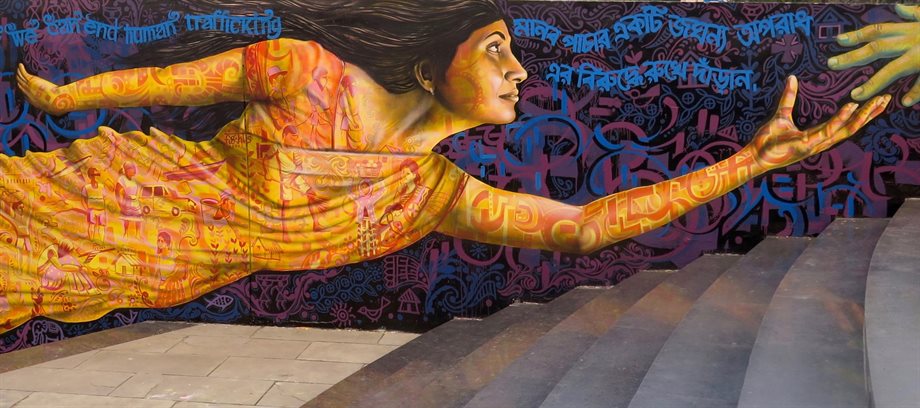
There are more slaves alive today than at any point in history. Around the world, nearly 46 million people are forced to work against their will for no pay. This includes 13,000 people in the UK.
Responding to this challenge over the past 20 years, a new antislavery movement has shown us that a world without slavery is possible. The eradication of slavery by 2030 now appears in the UN's Sustainable Development Goals and the UK is a world-leader in fighting slavery, passing the Modern Slavery Act in 2015. But the growth of the antislavery movement masks its short-term thinking: it lacks robust, evidence-based strategies for abolition. How can we achieve an end to global slavery by 2030?
Professor Zoe Trodd will lay out facts, figures and definitions for global slavery, then discuss the world’s first large-scale research platform for ending slavery—a new Beacon of Excellence at the University of Nottingham that is working to help end slavery by 2030. These are 16 interventions that can be replicated and scaled, including mapping slavery using satellites, measuring the number of slaves per country, treating the psychological impact of enslavement, and a local process where we achieve slavery-free cities and towns—and make Nottingham the world’s first slavery-free city. She will also look at examples from historical antislavery movements. Do past antislavery movements offer any lessons? Is historical antislavery a usable past for today’s efforts?
Professor Zoe Trodd is Director of the Rights Lab, a University of Nottingham Beacon of Excellence. Her books include To Plead Our Own Cause: Personal Stories by Today’s Slaves (2008), Modern Slavery (2009), The Tribunal (2012), and Picturing Frederick Douglass (2015). She recently addressed the European Parliament about its antislavery policy, and works with governments and antislavery NGOs on strategies to end slavery and trafficking. She is currently teaching the world’s first massive open online course (MOOC) about modern slavery, which is still open for late registration and launches on May 8.
This event forms part of the 'Penny Lecture Series' in collaboration with the Univeristy of Nottingham, Backlit Art Gallery, and the National Justice Museum. Matthew Chesney (Director of BACKLIT) and Hannah-Rose Murray (PhD student, in the University of Nottingham) have curated a small exhibition to formerly enslaved African American Josiah Henson and his friend and benefactor, manufacturer and philanthropist Samuel Morley. Josiah Henson and Samuel Morley’s connected story represents the campaign for freedom, equality and human rights in Nottingham, and beyond. In the late nineteenth century, Samuel Morley organised a series of 'Penny Lectures' for the working classses. Designed to increase their education, men and women would pay just a penny to attend a variety of lectures on numerous subjects from science to politics.
This event is free but please register online.